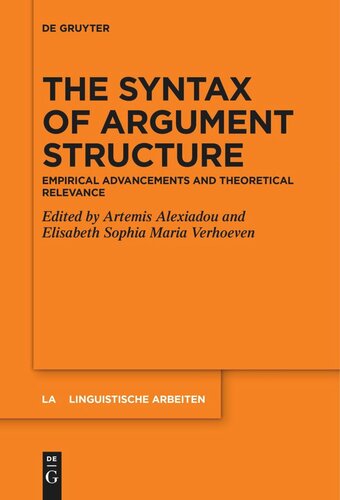

Most ebook files are in PDF format, so you can easily read them using various software such as Foxit Reader or directly on the Google Chrome browser.
Some ebook files are released by publishers in other formats such as .awz, .mobi, .epub, .fb2, etc. You may need to install specific software to read these formats on mobile/PC, such as Calibre.
Please read the tutorial at this link: https://ebookbell.com/faq
We offer FREE conversion to the popular formats you request; however, this may take some time. Therefore, right after payment, please email us, and we will try to provide the service as quickly as possible.
For some exceptional file formats or broken links (if any), please refrain from opening any disputes. Instead, email us first, and we will try to assist within a maximum of 6 hours.
EbookBell Team

4.8
14 reviewsBridging theoretical modelling and advanced empirical techniques is a central aim of current linguistic research. The progress in empirical methods contributes to the precise estimation of the properties of linguistic data and promises new ways for justifying theoretical models and testing their implications. The contributions to the present collective volume take up this challenge and focus on the relevance of empirical results achieved through up-to-date methodology for the theoretical analysis and modelling of argument structure. They tackle issues of argument structure from different perspectives addressing questions related to diverse verb types (unaccusatives, unergatives, (di)transitives, psych verbs), morpho-syntactic operations (prefixation, simple vs. particle verbs), case distinctions (dative vs. accusative, case vs. prepositions), argument and voice alternations (dative vs. benefactive alternation, active vs. passive), word order alternations and the impact of animacy, agentivity, and eventivity on argument structure. The volume will be of interest to theoretical linguists, psycholinguists, and corpus linguists interested in the syntax of argument structure and its modelling using precise empirical methods.